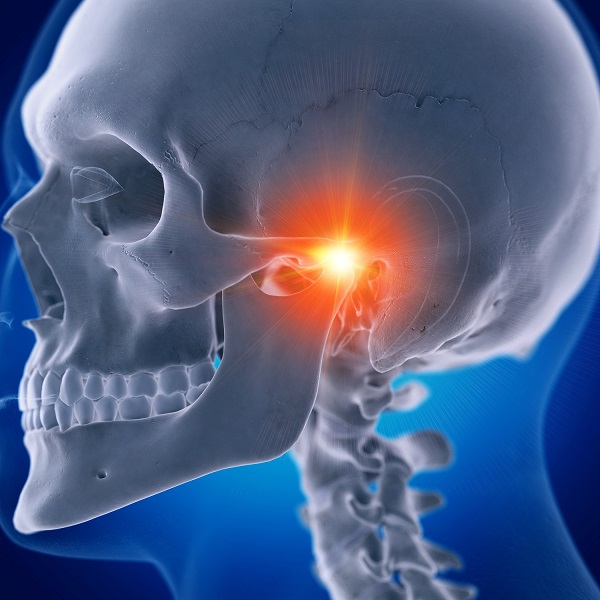Posted: May 3, 2019
 Symptoms of temporomandibular joint disorder are a nuisance at best, and painful and debilitating at worst. In general, TMJ symptoms arise from stress, damage, exertion or strain upon these joints. As an experienced dentist, Dr. Scott Greenhalgh can determine the specific cause of your symptoms and help you find relief.
Symptoms of temporomandibular joint disorder are a nuisance at best, and painful and debilitating at worst. In general, TMJ symptoms arise from stress, damage, exertion or strain upon these joints. As an experienced dentist, Dr. Scott Greenhalgh can determine the specific cause of your symptoms and help you find relief.
Bite Alignment and TMJ Pain
Sometimes jaw pain and other symptoms are related to the way your upper and lower jaws come together. The way your teeth meet and overlap is called the bite, or occlusion. When the bite relationship is unbalanced or otherwise not ideal, then the condition is called "malocclusion." Common malocclusions are called over-bites, under-bites and cross-bites. Flared front teeth or an open bite would also be considered malocclusions.
A bad bite may strain your jaw joints. On the other hand, when your teeth come together in an ideal relationship, the jaw joints themselves are better aligned and undue pressure isn't placed on one or the other.
The Alignment and Condition of Your Teeth
Certain issues related to your teeth may affect your bite, and in turn contribute to TMJ symptoms. For example, if your teeth are:
- Crooked
- Crowded
- Worn
- Misshapen
- Uneven, in which case they may not bite together in a balanced manner
Misaligned teeth may contribute to an unbalanced bite that strains the jaw joints. You may experience symptoms of TMJ disorder as a result.
Teeth Grinding and TMJ Symptoms
Grinding or clenching teeth together commonly leads to:
- TMJ pain
- TMJ clicking
- Jaw soreness
- Headaches
- Worn teeth
Some people habitually grind their teeth while they sleep, a condition known as bruxism. Not only does bruxism wear down and crack teeth enamel, it also causes headaches. The constant grinding strains the temporomandibular joints and their related ligaments, nerves, blood vessels and muscle. The resulting symptoms may include facial soreness, jaw pain, earaches, toothache, and back and neck pain.
Other Causes of TMJ Problems
There are other potential causes, such as:
- Disc dislocation
- Arthritis
- Jaw trauma or injury
- Stress
If you think you have a TMJ disorder, your next step should be to arrange a consultation with a dentist experienced in treating this disorder. Dr. Greenhalgh has been practicing dentistry for decades, including helping patients suffering from jaw joint pain. After meeting with you to discuss your symptoms and perform an evaluation of the jaw joints, Dr. Greenhalgh can determine if TMJ disorder is a likely culprit. If so, he will describe your treatment options and help you choose the best course of action.
Find the Right Course of Action for Your Symptoms
If you are experiencing TMJ symptoms and searching for an effective treatment plan, please call the practice of Dr. Scott Greenhalgh at 303-988-9060. Our Lakewood, CO, practice proudly provides care for patients from across the surrounding areas, including Denver and Golden.







